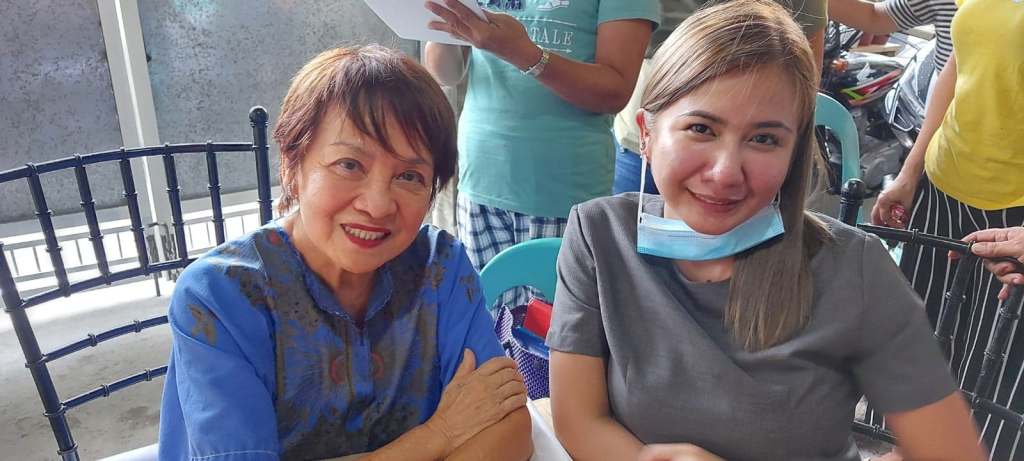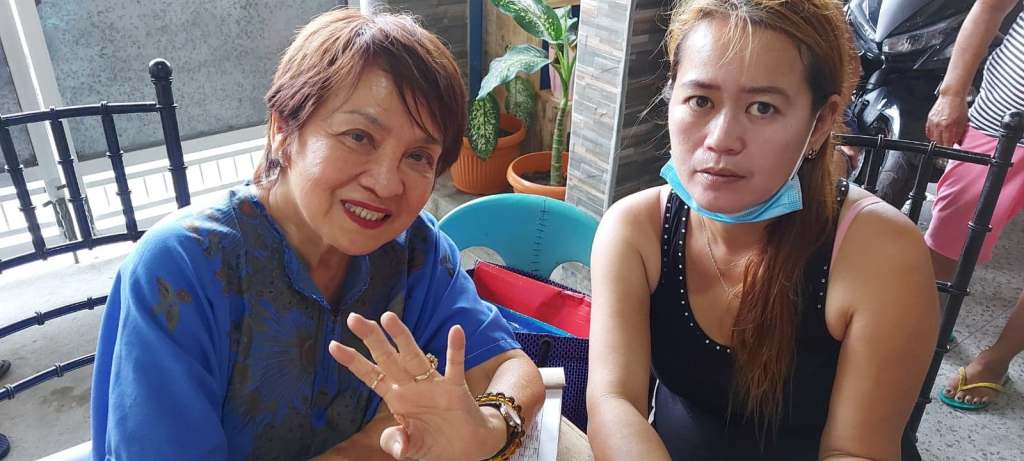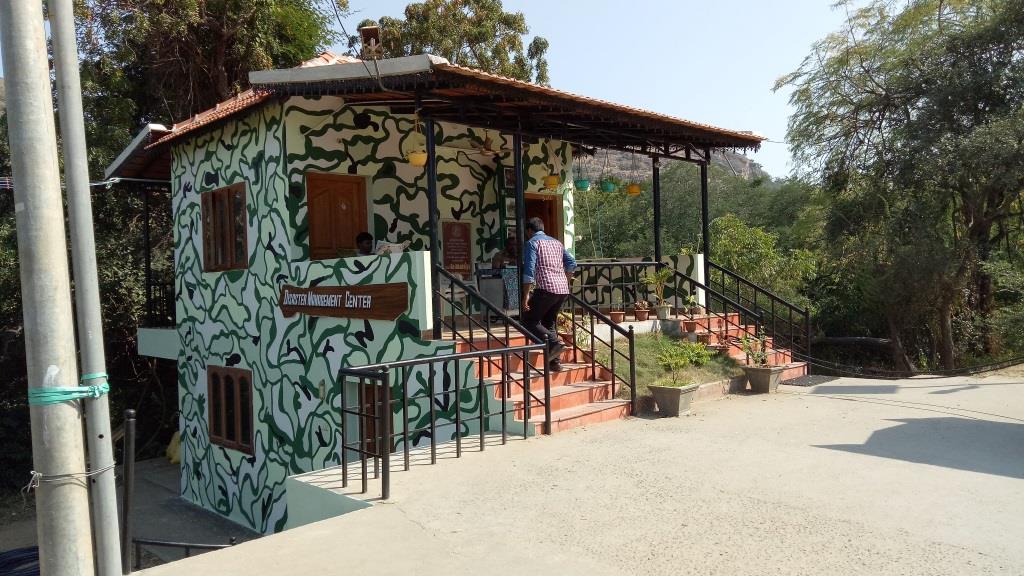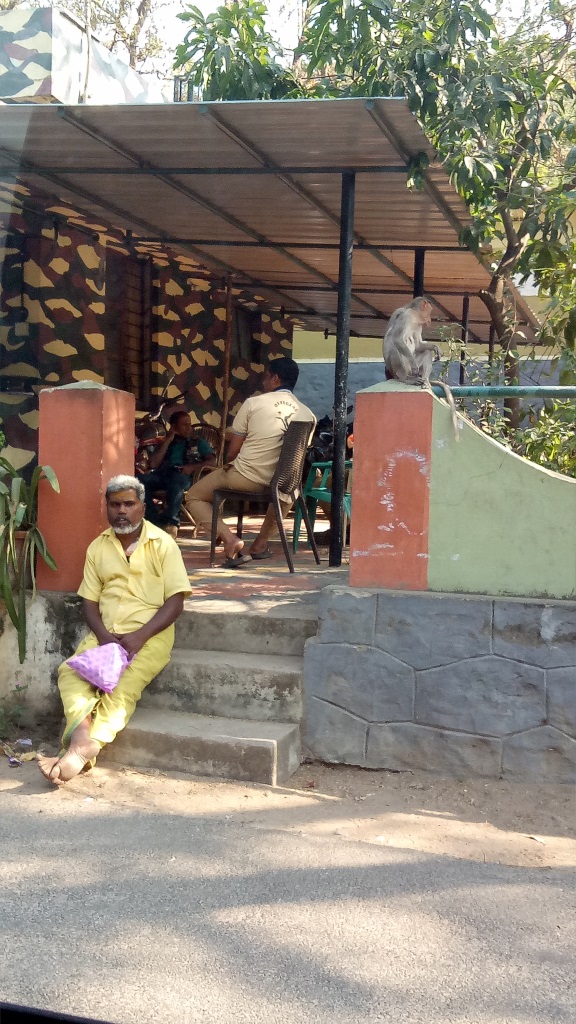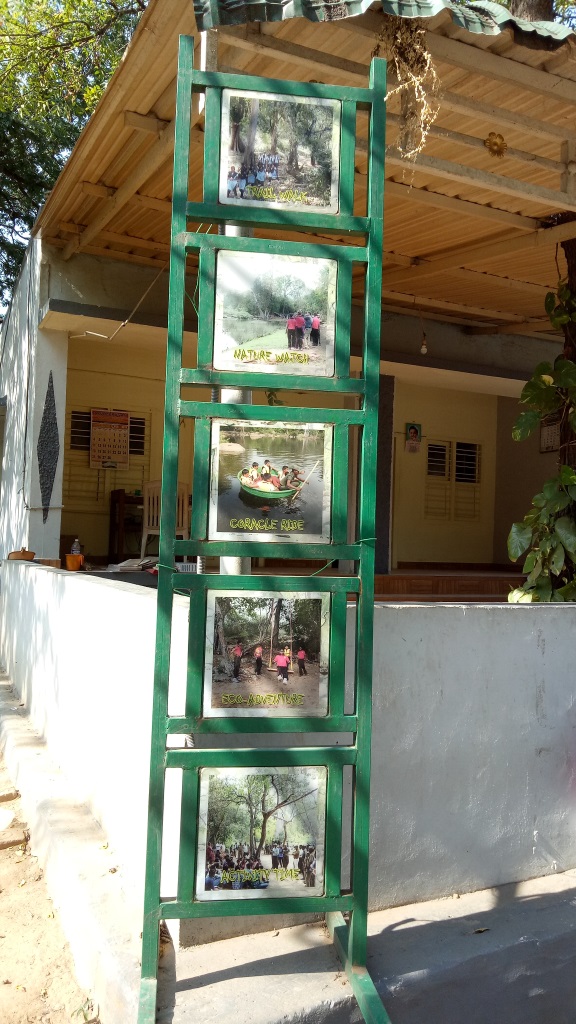CHAPTER ONE. THE CARREONS
MARTIN CARREON: THE FATHER OF MARCELLA
Martin Carreon, the Ralph’s grandfather, was an influential man during his lifetime. He was a Councilor in the government of the City of Baguio. He was also the Secretary of Mayor Eusebius “Jay” Halsema. Mayor Halsema was an American Engineer, the fifth and last American Mayor who was instrumental in creating Baguio what it is today. The Carreons would have owned a lot of properties strategically located in Baguio, had the World War II not have occurred. Martin and his wife were part of the seventeen people who were massacred by the Japanese, just before the Japanese surrendered to the Americans in 1945.
Martin had four children: Victor, Cornelio, Marcella and Celerina. The Carreons were tall and good-looking.
MARCELLA’S SISTER CELERINA “CELING”
Celerina’s first husband, Pedro Anastacio, disappeared and was suspected to have also died during the World War II. He left for Nueva Ecija when the War started, and was never heard of since.
They were brought to Irisan, on the outskirts of Baguio. The Japanese pretended to free them. When they started to run to safety, they were shot. Some of them fell on a hole that was dug out for them.
At that time, Celerina was pregnant with Judy. She was carried her small son Herminigildo across her chest when the shots rang out, Herminigildo was the one who took the shots. Blood splattered all over Celerina. She played dead when the Japanese checked to see if they were still alive. Celerina bore many sharpnel wounds in her arms. Until her death, the scars remained to remind her of this horrible period.
Their other daughter, Evelyn, died in Isabela because there were no medicines during the war.
MARCELLA’S BROTHER CORNELIO
Cornelio was born in Baguio City. He went to study Agriculture in UP, but he did not finish college. He became a diamond driller foreman. He was assigned to Cebu during his mining activities. There he met his wife, Liling Trocio. They met during a dance, and he was taken by her. They got married and moved to Baguio. They had three children– Nestor, Vilma, and Manuel.
World War II erupted. Because there were more crops to eat in Isabela, they moved to Baguio.
Then Cornelio was assigned to Surigao in 1948. He was working for Surigao Consolidated Mining Company. He left Nestor and Vilma in Baguio, and only brought Manny with his wife and himself. Nestor and Vilma studied in Baguio until they finished High School. Manny studied there until Grade 5.
After that, Cornelio went to Zamboanga, also with the same company. Manny went to Baguio for his High School. He was in Zamboanga only for his Grade 6.
Cornelio moved to Manila when Manny was going to College. By this time, Vilma was working in Cebu as a dentist. Nestor worked in the mines.
Cornelio retired and died in Manila after suffering a fall which cracked his head. He was 72 when he fell, but lived for another ten years when he died.
Manny remembers that Cornelio was a model father. He was pikon, meaning he didn’t take losses. One time, when Manny and Coning were playing chess. Nestor came by and made side comments regarding the play of Coning. Coning lost interest in the game, saying, “Alright, you take over if you know so well the moves.”
Vilma was tall like the Carreon family. She took up Dentistry in Manila as her profession. When she married Victor Mamawag, who was in the military, she moved to Cagayan de Oro, in Mindanao. Vilma and Victor had three children: Wilbur, Marsha and Vivien. Victor died within a few years after Vilma. He died of liver ailment.
She died of liver ailment, just like her brother.
Nestor was the eldest son of Cornelio. He grew up with Ralph in Baguio until he finished high school. Then he followed his father’s footsteps and worked in the mines. He went to Marinduque.
During his last home leave, Nestor took effort to visit his two Aunts, Celing and Marcella, who lived in Baguio. He brought them flowers and kakanin, a native delicacy made of glutinous rice, coconut milk and brown sugar. He spent a day with them.
Nestor reached Marinduque at a late hour when his choice was either to spend overnight in the Pier, or take a ride home. There was a jeep that was already full when Nestor arrived. Nestor told the driver that he will hold on to the rail of the jeepney, outside the jeep and next to the driver. As the driver sped away, Nestor fell from the jeep and was run over by the next jeep. He left a wife, Julie, and six children.
CHAPTER TWO. THE DIAZES OF KAWIT
Ralph’s father came from Kawit, Cavite, south of Manila. His grandparents were Simplicio Diaz and Timotea Cachuela.
Simplicio was a blacksmith, a “PANDAY“, a job that was common in Cavite. He crafted the metal shoes of horses. Fashioned pots and pans, blades of knives. Being a “Panday” was a backbreaking job. It was a sunrise-to-sunset kind of a job. Simplicio became a hunchback due to the hard labor and his working on metals.
Simplicio built a work area adjacent to their house. It was a small room covered with a nipa roof. The nipa roofing protected the fire from getting wet during the rainy season. The fire was necessary to shape and heat the metal objects. The soil around the work area was black. The metals and the soot from the fire resulted in a black soil.
Simplicio’s wife, Timotea Cachuela, came from a big family of eight. They were so poor they were scattered all over the country.
Timotea was fair-skinned, Chinese-looking. She was beloved by all her grandchildren. Whenever they visited her, she would prepare special food for them. They loved her “burong mangga“, or fermented mango, because it was already mushy (and tasty). They would pair this buro with boiled dishes, called “nilaga“. Before they left for home, she would make adobong shellfish, fresh from the sea. The children all loved Timotea. They visited Kawit regularly until the grandparents died. This was around the time when Jerry was five years old.
Simplicio and his wife, Timotea Cachuela, had six children: Ambrosio, Carmen, Ceferino, Clinio, Jose, and Vito.
Since Ambrosio was the eldest child, it was natural for him to inherit his father’s craft. Ambrosio became the “Panday” of the family. The other siblings had to leave Kawit to find work elsewhere. Ceferino became a dentist, and Clinio and Vito became educators.
Vito used to teach Math, Physics, Geometry at the National University in Manila. While there, Vito met an American teacher, who invited Vito to Tuguegarao to open schools there. The American and Vito stayed at the house of a certain Victoria dela Cruz married to Herminiano Villaflor. Vito married their daughter, Laura. Laura taught High School without finishing any college degree. But she finished her college degree when her children were already grown up.
Clinio became the Principal of the Torres High School in Manila.
Jose was undecided as to what course to take. Fate made the decision for him when his brother Ceferino, who was a successful dentist, suddenly died. The family decided to let Jose inherit all Ceferino’s dental chair and dental tools. Jose was the father of Ralph.
CHAPTER THREE. MARCELLA AND “PEPE”
MARCELLA
Marcella Carreon was born in Baguio City. Her family lived in Campo Pilipino. I had glimpses of her life when she would tell me snippets of her life. She told me that her father was very strict with her. This was normal during those times when young boys would not be allowed to freely mix with young girls their age. Marcella was a very attractive girl, and had several suitors. They would walk her home until the corner before their house. Then she would shoo them away, for fear that her father would see them. So the youth would turn back, and Marcella would get home safely.
She met her husband, Jose “Pepe” Diaz, when she was teaching in Tacloban, Leyte. At the beginning, she didn’t accept his suit. He was much too quiet for her.
Then a few years later, they met each other again. This time it was in another province. Both were still single, and Pepe was still pressing his suit. So Marcella decided that this was her fate—to marry Pepe.
The couple had their ups and downs. Looking back, Marcella remembers that Pepe was very patient with her. When she was displeased with him, Pepe would just leave her alone for as long as it needed for her to cool down. Then after a spell, he would go near her and ask her if she was still angry with him. At that point, she would have forgotten her anger.
For a brief period, Pepe and Marcella had a happy normal life surrounded by their brothers and sisters, and loved ones. Since Pepe’s brother Vito now lived in Tuguegarao, Cagayan, Pepe and Marcella decided to move to Isabela. Isabela had also more food than Baguio.
Marcela taught in Ilagan High School. Pepe ran a clinic in Isabela. At that time, the government had offered to give lands as “Homesteads” to people who would till them. Marcella got money from her being a teacher to buy a 20 hectare rice land.
Marcela’s sister Liling was with Marcela in the farm because her husband, Cornelio, was in Mindanao. Ralph was happy because his cousins, Nestor and Vilma, the children of Liling, were also them. It was a good time. Later, when Marcela left Isabela, Liling took over
CHAPTER FOUR. WORLD WAR II.
World War II interrupted their serene lives. Since war was going on, no production of food could take place. Marcella moved from Isabela, then to Baguio. Her husband, Pepe, had become sick with tuberculosis. His condition was getting worse. So they moved to Kawit. But there was even less food there than there was in Baguio.
In Kawit, while the US planes were doing their “carpet bombing”, Ralph, who was then five years old, was holding his Uncle’s hand, seeking for shelter. They found a building that they could hide in. However, a pot fell. The Uncle said, “Let us leave this place.” They had just barely left when the building exploded into bits.
The pair zigzagged looking for a safe place. Two other buildings were bombed. Ralph and his Uncle were able to reach his grandmother’s house safely.
Pepe passed away in Kawit. Ralph was then six years old and Jerry, was only two weeks old. To this date, everyone remembers six-year old Ralph standing near his father’s casket pulling his mother’s skirt, asking “Why is Dad inside the box?” There was not one dry eye in the room, as they watched this poignant scene.
In Baguio, Marcella’s parents were massacred by the Japanese almost close to the end of the War. They were a group of seventeen people, that included Marcella’s sister, Ciling and her two children. The group was herded to Irisan, at the outskirts of Baguio. The Japanese pretended to free them. When they started to run to safety, they were shot. Some of them fell into a hole that was already dug out to receive them.
Ciling was then pregnant with Judy. She was carrying her small son, Herminigildo close to her breast. Herminigildo was the one who took the shots. Blood splattered all over Ciling. She played dead when the Japanese checked them. Ciling bore many sharpnel wounds in her arms. Until her death fifty years later, she would show the scars and retell her story.
After the war, Marcella and her two children moved back to their ancestral home in Campo Filipino. Somebody had already put a structure in the lot. This being the war, both families needed a shelter above their heads. The two families mutually agreed that the Diaz family be given a room in this stranger’s house. In exchange, the Marcela would allow them to stay on the lot until they found another place to move to. It was a strange arrangement, but at that time, there was no other choice for both families.
Note: This story ends in 1940. It is now 2021, eighty years from when it ended. Most everyone that is in the story have gone to the other world, Ralph included. I will search for other stories and put them here, for posterity.






